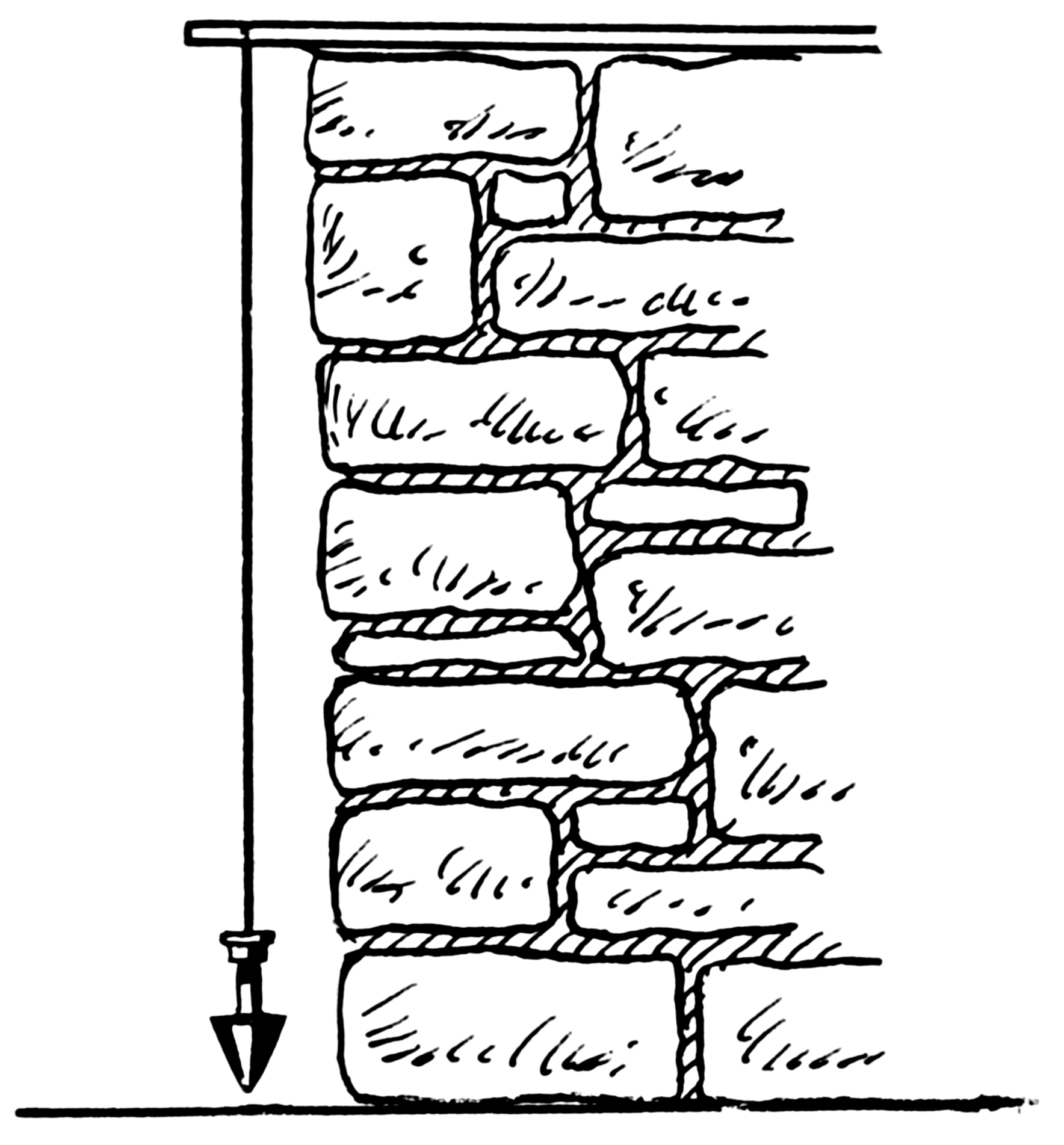
Year C, Ordinary 15, 2016 – Out of Plumb
Podcast: Play in new window | Download
Subscribe: Apple Podcasts | RSS
Hello, Everybody!!
My late father was a civil/architectural engineer, so I know a thing or two about constructing stuff. Well, let me say, I’ve seen many things constructed and know the names of tools used in constructing! I think I would do fairly well if I were to be plunked into a workshop and asked to identify tools since I spent many weekends of my childhood handing Dad whatever object he needed – as well as lifting and holding things. (Remind me to tell you about the time he asked me to stand on 2×4’s as he used a hammer gun to nail them into concrete. WOW.) Anyway, the Old Testament passage uses a plumb line as a visual for God’s intention to judge the nation of Israel, Paul implies a plumb line as he greets the disciples in Colossae, and Jesus, seeing a lawyer get himself all twisted up in a plumb line of his own design, tells a story that shows him how to untangle his mess.
This week’s texts are:
Amos 7:7-17 [01:58] – Commentary about this passage would suggest that my underlying theme of plumb lines is not so cut and dry. An obscure Hebrew word ‘anah is found nowhere else in the OT, so defining it as “plumb line” is at best a good guess. Some think it may be “tin” and others have suggested “grief”. We chose to go with the traditional interpretation for the imagery and for the way being “out of plumb” runs through the other two passages. I chose Eye smart as the primary expressed intelligence and David chose People. We have illustrations and special effects for Body, Music, and Self, as well. If anyone puts together a rap battle or writes competing arias for Music smart, please share them with us! I would love to hear it!
- Primary Expressed Intelligence – {MWD} Eye [03:15] and {D2} People [05:52]
- Smarts – Body [07:24], Music [07:58], People [08:38], Self [10:16]
- Amos 7 worksheet
Colossians 1:1-14 [11:07] – Commentary suggests that this letter is not authentic to Paul, but, once again, we are sticking with the tradition that Paul is the author, and you will understand why as David argues his case for the Primary Expressed Intelligence being People smart. Paul is not known to the disciples in Colossae and so is “massaging” an entry with them. I use Math smart to discuss Karl Jacobson’s observation that Paul uses rhetorical reversal in his opening. Paul has heard good things about this group of believers and so we explore the origin of a popular phrase in Word smart. Some of what Paul has heard is that they show great love for the saints and have led others out of darkness which we look at using Eye smart. He also understands that they are quite strong in the faith, and we look at strengthening in Body smart. Nature smart might be used to talk about bearing fruit and Self smart considers how we know one another.
- Primary Expressed Intelligence – {MWD} Math [13:48] and {D2} People [11:46]
- Smarts – Word [15:29], Eye [16:33], Body [17:36], Nature [18:41], Self [19:33]
- Colossians 1 worksheet
Luke 10:25-37 [21:00] – Ever try to use twisted logic to get yourself out of a jam? This is where the old saying about telling the truth because a lie is too complicated to remember is useful! As I’ve gotten older and my hard drive has begun filling up, I’ve found the useless complications of chicanery muck up the efficiency of my operating system. Someone should have taken pity on the lawyer whose pretzel logic prompts Jesus to tell a story. Oh, wait! Jesus took pity on him and told a story! I think the primary expressed intelligence is Math based on the twisted logic of the lawyer. David thinks it is People based on Jesus’ interaction with him. We also explore how the story Jesus tells might be felt and expressed in our bodies in Body smart. We have posted some videos of animals helping other animals in Nature smart, and ask some searching questions about our motivations to help – or not – in Self smart.
- Primary Expressed Intelligence – {MWD} Math [21:48] and {D2} People [24:43]
- Smarts – Body [27:43], Nature [28:56], Self [29:27]
- Luke 10 worksheet
Links
… in Amos
- A “nightmare” – not to make fun of a condition, but to engage the question of which worldview is true, or plumb
- Search to get a handle on plumb not plumb
- A Knight’s Tale
… in Colossians
- Mark Twain’s attributed quote
- Karl Jacobson’s rhetorical reversal
… in Luke
- Worst Defense Ever
- Frederick Buechner’s illustration
- Animals helping animals
- And saving them, too!
- The Good Samaritan LOGOS style!
- Good Samaritan as readers’ theatre: Luke 10.25-37 RT

Comments are currently closed.